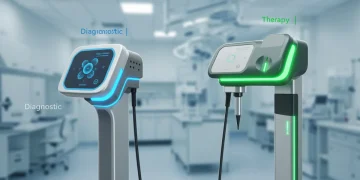MedicaidAccess: Your Key to Affordability and Care

Medicaid Access provides essential healthcare coverage for low-income individuals and families, offering services that include preventive care, mental health support, and financial assistance for medical expenses.
When it comes to healthcare, MedicaidAccess can be a game-changer for many individuals and families. Have you ever wondered how this program can play a role in improving your health and financial stability? Let’s delve into the details.
Understanding MedicaidAccess and Its Importance
MedicaidAccess is crucial for many people seeking affordable health care in the United States. Understanding it is the first step to accessing essential services. This program helps those with limited income secure the medical attention they need.
What is MedicaidAccess?
MedicaidAccess refers to the ways in which eligible individuals can access Medicaid services. This program aims to provide financial support for medical expenses, ensuring that everyone has access to necessary health care.
Why is it Important?
The importance of MedicaidAccess cannot be overstated. It can affect lives positively by:
- Reducing out-of-pocket health care costs.
- Providing comprehensive health benefits, including preventive services.
- Supporting mental health and substance use disorder treatments.
Understanding how MedicaidAccess operates helps individuals navigate their options. Many do not realize that services range from routine doctor visits to hospital care. With proper guidance, people can unlock valuable resources that improve their health outcomes.
Eligibility for MedicaidAccess varies, but several criteria must be met. Applicants must be low-income and may fall under categories such as pregnant women, children, and individuals with disabilities. Knowing this can empower potential users to seek assistance when needed.
In conclusion, MedicaidAccess plays an essential role in ensuring that low-income individuals receive care. It is an important resource to consider when looking for health services.
How MedicaidAccess Works for Low-Income Families
MedicaidAccess is designed specifically to assist low-income families in obtaining the health care services they need. Understanding how it operates can make a significant difference for those struggling financially.
Eligibility Requirements
To qualify for MedicaidAccess, families must meet specific income guidelines. These criteria can vary by state, but they typically include:
- Income below a certain threshold based on family size.
- Residency in the state where they apply.
- Citizenship or legal residency status.
Once eligibility is established, families can access a range of health services that greatly alleviate financial burdens.
Types of Services Provided
MedicaidAccess offers a broad array of services, ensuring families receive comprehensive care. Some key services include:
- Routine check-ups and preventive care.
- Emergency services and hospital visits.
- Prescription drugs and medical supplies.
These services aim to promote health and prevent serious illnesses. For many families, this means the difference between health and financial hardship.
Furthermore, navigating MedicaidAccess can sometimes seem complex. Families may benefit from assistance programs that guide them through the application process, helping them gather necessary documentation.
Access to MedicaidAccess can play a vital role in a family’s overall well-being, allowing them to focus on health rather than financial stress.
Exploring Eligibility Criteria for Medicaid Access

Understanding the eligibility criteria for Medicaid Access is essential for individuals and families who need health coverage. The program serves as a lifeline for many, but not everyone qualifies. Let’s explore the key requirements.
General Requirements
To be eligible for Medicaid Access, applicants must meet specific income levels and other criteria. Typically, these include:
- Having a low income that falls below the federal poverty level.
- Being a resident of the state in which they apply.
- Being a U.S. citizen or meeting certain immigration status requirements.
These general guidelines help ensure that Medicaid Access is focused on those who need assistance the most.
Specific Categories
Eligibility can also depend on specific categories. Various groups may have distinct criteria, such as:
- Children and pregnant women often qualify for higher income limits.
- The elderly and individuals with disabilities may also have unique requirements.
- Parents or caretakers of dependent children sometimes have different thresholds.
By understanding these categories, families can determine if they qualify. Additionally, many states offer programs to assist applicants with the process.
Applying for Medicaid Access usually involves filling out an application form, submitting required documents, and sometimes attending an interview. Knowing what to expect can make this process smoother.
Overall, staying informed about the eligibility criteria helps individuals navigate their options in securing necessary health care.
Benefits of Medicaid Access for Comprehensive Care
Medicaid Access offers numerous benefits that extend beyond mere financial assistance. It plays a vital role in providing comprehensive health care, enhancing the well-being of individuals and families across various communities.
Access to Essential Services
One of the main advantages of Medicaid Access is the availability of essential health services. This includes:
- Preventive care, such as vaccinations and check-ups.
- Treatment for chronic conditions like diabetes and hypertension.
- Mental health services, including counseling and therapy.
These services are crucial for maintaining overall health and preventing future medical issues.
Financial Security
Another significant benefit is financial security. With Medicaid Access, families can:
- Reduce out-of-pocket expenses for medical treatments.
- Access necessary medications at little to no cost.
- Avoid medical debt, which can be overwhelming.
This financial relief allows families to focus on other important needs, such as education and housing.
Furthermore, Medicaid Access ensures that individuals do not neglect their health care due to cost concerns. When people have the support to seek necessary care, they are more likely to lead healthier, more productive lives.
In addition to providing immediate care, Medicaid Access fosters long-term health improvements within communities. By investing in preventive services, it helps lower the rates of chronic diseases and hospitalizations.
Navigating the Enrollment Process for Medicaid Access
Navigating the enrollment process for Medicaid Access can seem daunting, but understanding the steps can make it easier. Families seeking coverage should gather essential information and follow a few key steps to ensure a smooth application process.
Step-by-Step Enrollment
The enrollment process typically involves several important steps:
- Determine Eligibility: Start by checking if you meet the eligibility requirements based on income and family size.
- Gather Required Documents: Collect necessary documents like proof of income, identification, and residency.
- Complete the Application: Fill out the Medicaid application form, which can often be done online, by mail, or in person at your local Medicaid office.
Completing these steps efficiently increases the chances of a timely approval.
Important Tips
As you navigate the enrollment process, consider these helpful tips:
- Ensure all information is accurate and up-to-date to avoid delays.
- Keep copies of all submitted documents for your records.
- Follow up with your local Medicaid office to check the status of your application.
Understanding these tips can significantly ease your experience. Don’t hesitate to reach out for help; many organizations provide assistance in the application process.
Receiving Medicaid Access can be life-changing, ensuring that families have the health care services they need. With the right preparation, the enrollment process becomes a manageable task.
Medicaid Access is essential for many families in need of health care. It provides important services that can improve overall well-being. Understanding eligibility and the enrollment process helps families gain the support they deserve. With these resources, individuals can focus on their health and happiness, knowing they have reliable healthcare options.
FAQ – Frequently Asked Questions about Medicaid Access
What is Medicaid Access?
Medicaid Access is a program that provides healthcare coverage for low-income individuals and families, ensuring they receive essential health services.
Who is eligible for Medicaid Access?
Eligibility for Medicaid Access typically includes low-income individuals, families, children, pregnant women, and individuals with disabilities, but specific criteria may vary by state.
How do I apply for Medicaid Access?
To apply for Medicaid Access, you need to complete an application form online or at your local Medicaid office, providing necessary documentation to prove your eligibility.
What are the benefits of Medicaid Access?
Benefits of Medicaid Access include financial support for medical services, access to preventive care, and coverage for mental health services, which can significantly improve overall well-being.





